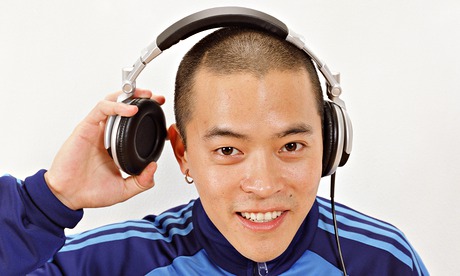
Belinda worked as a model, lived in a nightclub and often went to noisy parties. There was loud music wherever she went. Then she went to art school, where she listened to music through headphones while she painted. Now, with a quieter job in finance, she lives with the legacy of irreversible damage to her inner ear.
"I've had ringing in my ears from an early age. But it got much worse as I got older. All the noise damage added up and now I have constant tinnitus which I live with, and additional noises that flare up when my general health is poor."
Belinda is far from alone. The World Health Organisation has identified irreversible hearing loss and tinnitus as a growing global problem and is keen to stress that inner-ear damage is preventable. Ten per cent of the world's population is exposed to sound pressure levels that could cause permanent noise-induced hearing loss (NIHL). It's the most common occupational disability in the US and many countries around the world fail to protect employees from harmful sound levels at work.
But for those in the UK, social noise is now a far greater threat than noise at work: the European commission says that one in five young people is exposed to potentially damaging loud sounds during their leisure time. This figure has tripled since the 1980s and shows no sign of slowing down.
There are, of course, simple steps you can take to protect your hearing. Gemma Twitchen, senior audiologist at the charity Action on Hearing Loss, advises: "Buy a new portable music device if yours doesn't have a maximum volume control. Then don't override the maximum setting. And if you're in a noisy environment, don't be tempted to keep turning up your volume; it's better to use noise cancelling headphones so you shut out external noise and don't need to turn your music up too loud."
And she's got advice for people off to festivals this summer. "If the music sounds distorted, it's too loud. You should move away from the speakers or take a break."
Ringing in the ears or muffled hearing means the hair cells of the inner ear have been damaged. It usually recovers in a few days but Twitchen warns that repeated exposure can cause permanent hearing loss. "So, if your ears have been ringing after a concert, you should wear earplugs next time you go. They start at around £10 for quality earplugs, but people working in the music industry may want to get customised ones."
This applies to children, too. Kids strapped into buggies at festivals may not be able to say that they're finding the loud music uncomfortable. Twitchen welcomes Gwyneth Paltrow's lead in putting ear protectors on her children from a very young age when she took them to rock concerts. Although Twitchen is clued up on inner-ear health, she admits: "I have friends who are DJs who regret that they didn't look after their hearing. Once the damage is done, there's no cure. So it's worth taking simple precautions so you can continue doing what you enjoy."
Adrian Davis, professor of hearing and communication at University College London, agrees, but says that it's natural to enjoy noise up to a certain level. "People like loud music, they feel stimulated in noisy environments and it can be hard to persuade people to follow good practice like wearing earplugs." He worries about the ill effects of noise on general health, as well as the more obvious impact on hearing. "The noise in open-plan corporate offices and call centres, for instance, may not damage hearing but can cause raised blood pressure, sleep and mood disturbance and other long-term health problems." Several studies have shown that noise pollution is associated with higher rates of heart disease and deaths in adults, and poorer learning outcomes in children.
Noise disturbance can be greatest in places most in need of calm. Premature babies in intensive care units get agitated every time they are exposed to variations in sound or light. But hospitals can be very noisy places, and it is only recently that some units are paying attention to the need for peace and quiet if patients are to thrive.
Professor Colleen Le Prell of Florida University says that noise actually has a worse impact on hearing if your diet is substandard. "People with healthy diets who eat adequate fruit and vegetables, have better hearing thresholds than people with a poor diet, according to large population databases."
Studies on animals have shown that dietary supplements such as vitamins A, C, E and magnesium can prevent hearing loss by reducing inflammation and swelling and increasing the blood supply to the inner ear. Meanwhile, two recent clinical trials in humans have studied whether dietary supplements and a new drug can protect hearing after exposure to a loud noise. Results are due next month and may mean we'll be able to protect our ears by popping a vitamin pill before going out clubbing.
But Le Prell warns that, however effective a pill turns out to be, noise avoidance is the best strategy. Glasses can correct vision but hearing aids are far from perfect. It makes sense to avoid unnecessary and damaging noise. There's no way round it – it's time we all turned down the volume.

